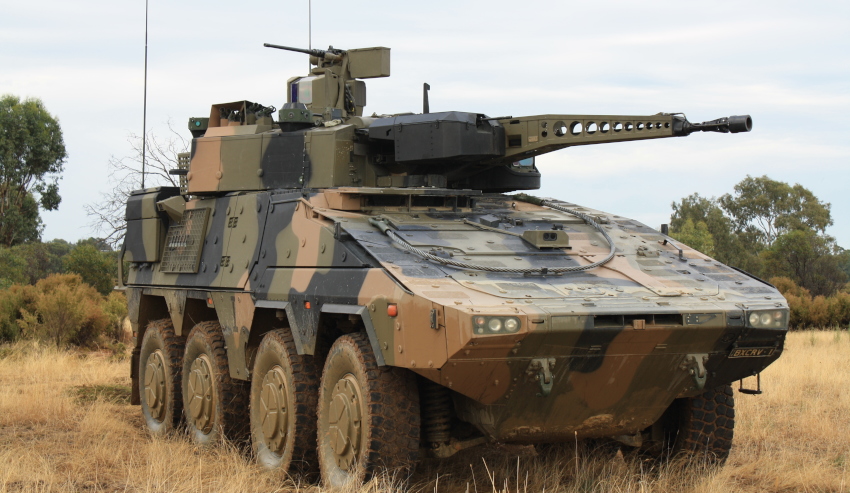West Melbourne’s Tectonica Australia has designed and developed visual and audio technology that will protect soldiers in combat and be exported through the Rheinmetall Defence global supply chain, the two companies announced on today.
Tectonica has developed the technology and successfully integrated it during two programs – the LAND 400 Phase 2 trials with the Australian Army and the German Army’s demonstrator Boxer project.
The local situational awareness system (LSAS) is called ALTERA and acts as the eyes and ears for soldiers in combat and is designed to increase awareness and protection.
ALTERA uses visual and audio technologies to provide vehicle crews and operators with improved situational awareness by enabling them to hear and see their surrounding environment, while remaining protected under armour. ALTERA was trialled by Rheinmetall and demonstrated to the German Bundeswehr to assess the improvement to situational awareness it delivers.
Crews can record reconnaissance missions and conduct after action reviews while instructors can supervise trainee crews and safety officers can monitor gunnery training from the comfort and safety of the passenger compartment. The imagery can also be made available to the battle management system.
Managing director of Rheinmetall Defence Australia Gary Stewart said the LSAS capability demonstrated the opportunities created through a national military vehicle industry focused on export opportunities to defence programs worldwide.
"Tectonica is a proven leader in the Australian defence industry that employs highly skilled engineers and manufacturing workers, invests significantly in research and development and exports its products globally," Stewart said.
"Tectonica’s partnership with Rheinmetall commenced with the joint funding of the LSAS project, and today’s important milestone will enable defence forces using Rheinmetall military vehicles to better protect their soldiers."
Tectonica Australia managing director David Levy said LSAS brought together a number of critical vehicle functions into a single system by applying the principles of open architecture.
"We are pleased to have this opportunity to provide a vital situational awareness capability to the ADF in partnership with a world leader in armoured vehicles," Levy said.
"Our partnership with Rheinmetall continues to demonstrate the company’s commitment to supporting Australian SMEs by providing a platform whereby innovative local technology can be exported to defence force programs around the world."
Rheinmetall, which has offered its Boxer CRV for the LAND 400 Phase 2 project, is up against BAE Systems, which has offered the AMV-35.
Under the German company's bid for the project, which is worth up to $5 billion, 225 combat reconnaissance vehicles for the Australian Army will be built in Queensland if Rheinmetall is successful.
Rheinmetall has partnered with several Australian SMEs for the project, including Melbourne-based Cablex, Burnie-based Direct Edge, Brisbane-based G&O Kert, Melbourne/Brisbane-based Hilton Manufacturing, Perth-based Hoffman Engineering, Melbourne-based Nezkot Precision Tooling and Engineering, Adelaide-based Plasteel and Adelaide-based Redarc.
Rheinmetall has also partnered with BlueScope, which would see the Port Kembla steelworks company deliver thousands of tonnes of feedstock for the LAND 400 Phase 2 project.
The company has also committed to establishing a Military Vehicle Centre of Excellence (MILVEHCOE), which will be the global manufacturing base for the Boxer CRV, the company’s new LYNX Infantry Fighting Vehicle and range of LANCE turrets under its LAND 400 offering to Australia.
The government will make a decision on the LAND 400 Phase 2 project in the first half of this year, with the national security committee expected to make a decision on the project as early as this week.








